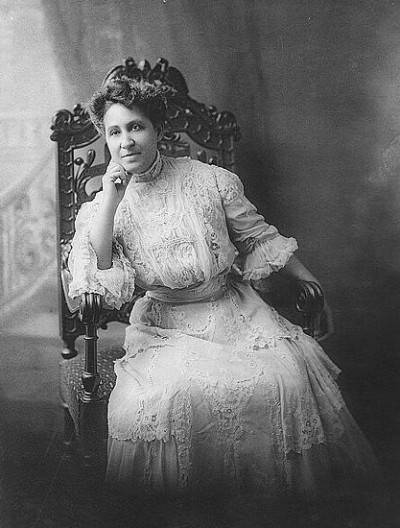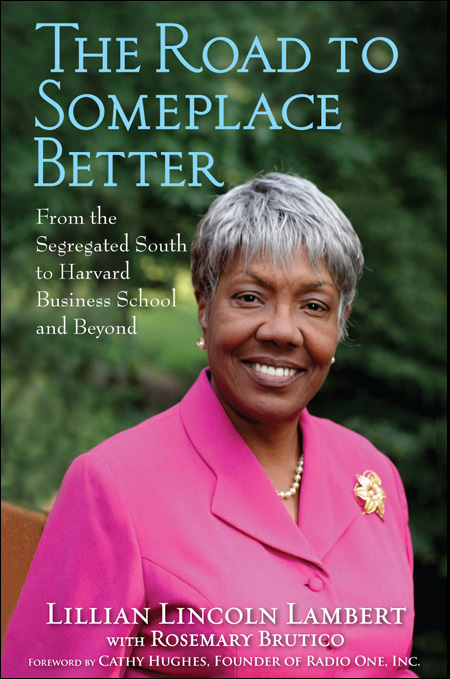Style and Fashion Blogger Ejieme Eromosele of My So-Called Corporate Life shares her advice on fashion in the workplace, why mentors are so important for black women in Corporate America, and shares a few of her favorite travel spots in this edition of Black Women in the Global Village.
Tag Archives: Education
Quote of the Week
“The world is full of opportunities — every day there’s something new that you can do. For example, you could make dirty water potable. Why does anyone not have potable water? Because it’s a problem that hasn’t been solved yet, but it can be.
Working on telephone lines — you don’t need a Ph.D. to do it, but you need to be able to read, discern, analyze problems. We are structurally creating an underclass that will be hard to fix. If we don’t have people who can create value, they will be servers forever. This is not an insurmountable problem. If you get kids when they’re young from just about any background, you can create people who are capable of utilizing science, technology, math, and engineering to solve problems.
If you look at the list of the top nations and try to find out where we are in reading, math, and any science, it is stunning. I don’t look at the list anymore because it’s an embarrassment. We are the best nation in the world. We created the Internet and little iPods and copying and printing machines and MRI devices and artificial hearts. That’s all science and engineering. Who’s going to create those things?“
–Ursula Burns on the state of education in the United States.
Black Women in the Global Village
 Marilyn Curtain-Phillips is a dedicated high school mathematics teacher, an effective facilitator/speaker and an accomplished author, who has a passion for helping students overcome their math anxieties. Marilyn has published the book “MATH ATTACK: How To Reduce Math Anxiety In The Classroom, At Work And In Everyday Personal Use”, published various articles, and created the playing card game MATH ATTACK, which was designed to improve mental math skills.
Marilyn Curtain-Phillips is a dedicated high school mathematics teacher, an effective facilitator/speaker and an accomplished author, who has a passion for helping students overcome their math anxieties. Marilyn has published the book “MATH ATTACK: How To Reduce Math Anxiety In The Classroom, At Work And In Everyday Personal Use”, published various articles, and created the playing card game MATH ATTACK, which was designed to improve mental math skills.
Mariyln sits down with BWLW to share her experiences in publication, her opinions on education and the role of parents, and why more black women should consider studying mathematics in this edition of Black Women in the Global Village.
Quote of the Week
“The biggest challenge we all face is to learn about ourselves and to understand our strengths and weaknesses. We need to utilize our strengths, but not so much that we don’t work on our weaknesses. Weaknesses are not just, “Oh, I’m not good in this subject.” Your weaknesses might also include impatience or even trying too hard. You might have to learn when to let go, or when to keep going. The biggest challenge is to overcome the things in yourself that keep you from moving forward. When you do that, then dealing with challenges outside yourself becomes easier.
In college, very often I was the only African-American woman in many of my classes and work environments. There hadn’t been many African-American women in some of the schools I attended — in engineering, for example. So, at NASA I felt fine because I’m used to working with other people, and I’m comfortable with myself. It would be nice — and I think it will be nice — to have more and more people of all kinds involved with space exploration.“
–Mae Carol Jemison an American physician and now retired NASA astronaut who became the first black woman to travel in space when she went into orbit aboard the Space Shuttle Endeavour on September 12, 1992.
On This Day: Mary Church Terrell
Mary Church Terrell-educator, political activist, author of A Colored Woman in a White World, and first president of the National Association of Colored Women—was born on this day, September 23, in 1863, in Memphis, Tennessee.
An 1884 graduate of Oberlin College, America’s first college to admit women and amongst the first to admit students of all races. Terrell was an African-American woman among mostly white male students. Still, the freshman class elected her as class poet, and she was elected to two of the college’s literary societies. Mary also served as an editor of the Oberlin Review. When she earned her bachelor’s degree in 1884, she was one of the first African-American women known to have earned a college degree. Mary continued on to earn a master’s degree from Oberlin in 1888.
Mary Church taught at a black secondary school in Washington, DC and at Wilberforce College, a historically black college founded by the Methodist Church in Ohio. She studied in Europe for two years, where she became fluent in French, German, and Italian.
Success Tips From Harvard’s First African-American Female MBA
By Lillian Lambert
A few years ago, I spoke at a conference of the African American Student Union, Harvard University. During the question and answer session a young man asked: “Why would someone with a Harvard MBA choose to go into the janitorial business instead of a more sophisticated profession?”
After taking a deep breath I responded. “I admit there is nothing glamorous about my industry. You’re right, it is not an industry where you will find many MBAs, much less a Harvard MBA. But I’ll let you in on a secret: It’s better to own the mop than to push the mop.”
As youngsters, many future entrepreneurs have vivid dreams of being business owners. They envision their product or service and sometimes try their hands as entrepreneurs by creating childish items to sell.
Such was not the case for me. Growing up in a sleepy farming village in Virginia, I never dreamed of being an entrepreneur. Everyone I knew worked for someone else. My unexpected entry into the world of entrepreneurship happened years later, after graduate school.
Getting my MBA from Harvard Business School, I anticipated becoming a corporate executive. Little did I know that corporate America was not breathlessly awaiting the arrival of a young black woman with a Harvard MBA, even if she was the first black woman to get such a degree. Not one corporation recruited me, and I did not rush to seek them out. During the six years after graduation, I held four jobs. From time to time I wondered, “When will I get to use this MBA?”



